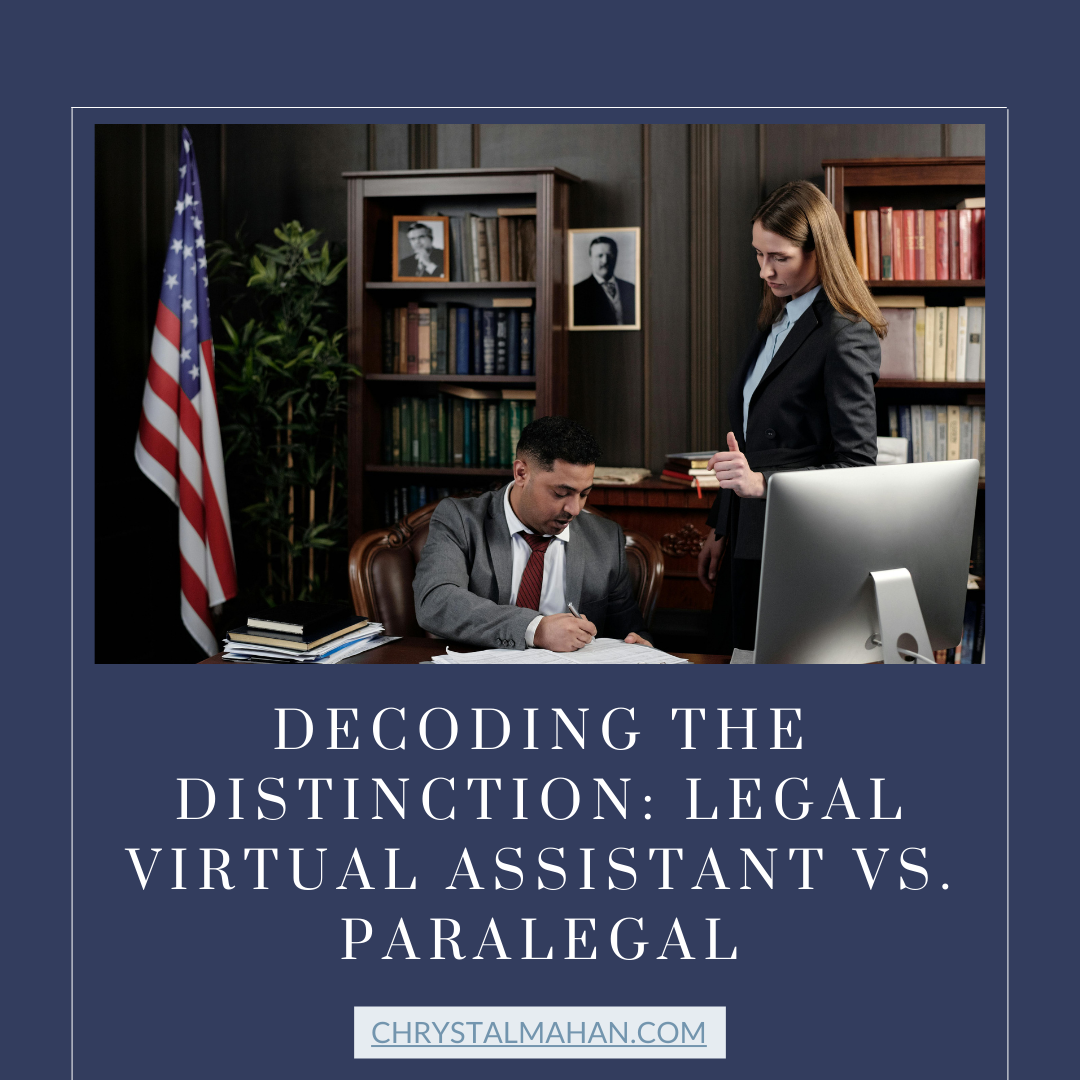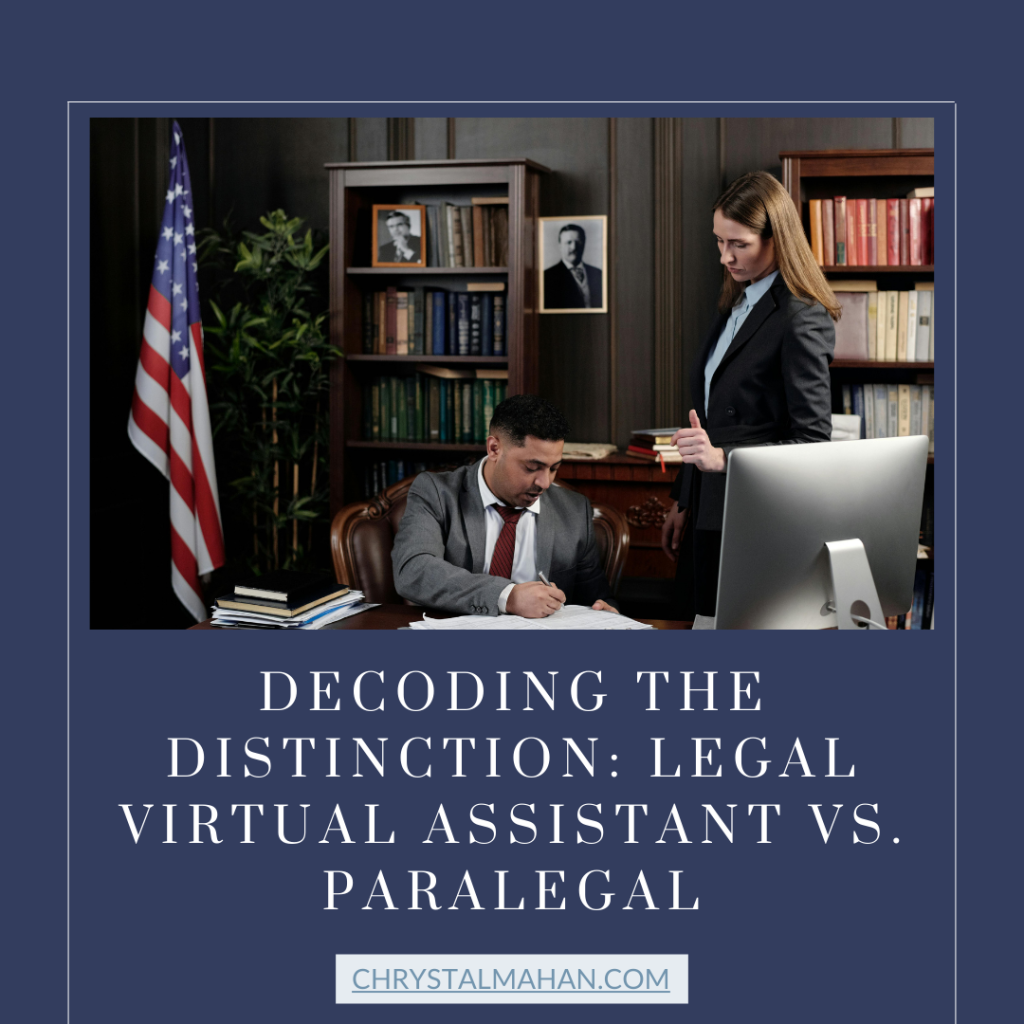Decoding the Distinction: Legal Virtual Assistant vs. Paralegal


As technology continues to reshape the legal landscape, the roles within law firms and legal departments have evolved. Legal Virtual Assistants (LVAs) and Paralegals are two positions that often generate confusion. While they both support legal professionals, there are distinct differences in their roles, responsibilities, and qualifications. In this article, we dissect the disparities between LVAs and Paralegals to provide clarity for those navigating the legal support realm.
# 1. Understanding the Role of a Legal Virtual Assistant (LVA)
Legal Virtual Assistants are remote professionals who offer administrative, clerical, and sometimes legal support to attorneys and law firms. Their tasks may include managing calendars, scheduling appointments, drafting correspondence, conducting legal research, and organizing case files. LVAs leverage technology to work remotely, providing flexibility and cost-effectiveness to legal practitioners.
# 2. The Scope of Work for Paralegals
Paralegals are trained professionals who assist attorneys in various legal tasks, often working within law firms, corporate legal departments, or government agencies. Their responsibilities encompass a broader range of legal duties, such as conducting legal research, drafting legal documents, assisting in case preparation, interviewing clients and witnesses, and managing trial exhibits. Paralegals typically work under the supervision of attorneys and must adhere to ethical and professional standards.
#3. Qualifications and Training
One key distinction between Legal Virtual Assistants and Paralegals is their qualifications and training. While LVAs may have administrative or legal experience, no formal educational requirements or certifications are specific to the role.
Conversely, Paralegals typically undergo specialized education and training, often earning an associate’s or bachelor’s degree in paralegal studies or a related field. Many Paralegals also pursue voluntary certification through organizations such as the National Association of Legal Assistants (NALA) or the National Federation of Paralegal Associations (NFPA).
#4. Supervision and Legal Practice
LVAs primarily provide administrative support to attorneys and are not authorized to practice law. They work under the direction and supervision of licensed attorneys and do not provide legal advice or representation.
Paralegals may perform substantive legal work under attorney supervision, such as drafting legal documents or conducting legal research. However, they are not licensed attorneys and are prohibited from offering legal advice or representing clients in court.
#5. Cost and Flexibility
From a practical standpoint, LVAs often offer cost-effective solutions for legal professionals, as they typically charge on an hourly or project basis and do not require office space or benefits. Additionally, Legal Virtual Assistants provide flexibility, allowing attorneys to access support as needed without the overhead costs of hiring full-time staff. Paralegals, while essential for more complex legal tasks, may represent a higher cost due to their specialized training and qualifications.
Utilizing a Legal VA Can Be a Great Benefit to Your Team
While Legal Virtual Assistants and Paralegals both play integral roles in supporting legal professionals, there are significant differences in their scope of work, qualifications, and responsibilities. Legal Virtual Assistants offer administrative and sometimes legal support on a remote basis, providing flexibility and cost-effectiveness.
Paralegals are trained professionals who perform substantive legal tasks under attorney supervision, often requiring specialized education and certification. Understanding these distinctions is essential for legal practitioners seeking to optimize their support resources and streamline their operations.
Like what you read? Drop me a line! Want to know more about utilizing a legal virtual assistant? Let’s chat over virtual coffee.
~ Chrystal






